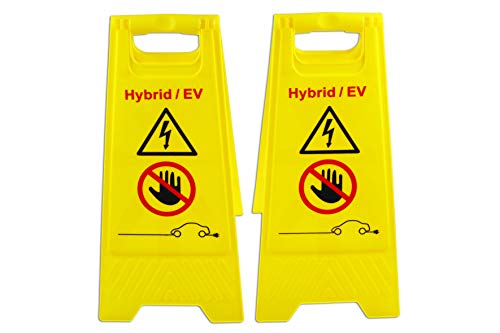Howdy,
I just completed my first stock cell swap on a friend's US spec 2012 i-MiEV with 82K miles. Swapped in 18 cells after carefully matching voltages. Got codes P1A46 in BMU and P1A45 in EV-ECU upon first wake up. No other codes. Cleared codes with Autel scanner. Drove car 7 miles and it drove fine. Not as peppy as my car with 4 year old pack but drivable. Got home after test drive, plugged it into Level 2 evse but charge light flashed and car icon with exclamation mark appeared again and charge indicator light went off again.
Particulars:
1. Car has new Lifepo4 20Ah battery with 13.4 resting voltage. Been using these on my car and on others with no issues. This is not the issue.
2. Unplugged AC compressor HV, no change
3. Unplugged AC compressor LV, no change
4. Unplugged Heater HV, no change
5. Unplugged Heater LV, no change
6. Checked continuity of black ground wires at C-21 and C-22, good
7. Checked 12V voltage on center pin of C22, good
8. Made sure battery pack ground strap was attached well.
9. Performed continuity checks on wiring from BMU to C21 and C22, good except one wire color different from troubleshooting chart.
10. Tried different evse, no go
11. DC-DC is charging at 14.5v
12. Checked fuses under hood, all good
13. All CMUs report no issues. All 66 temp sensors normal at 24c ish.
14. During my test drive the newly installed, used but new-to-me 2012 cells started showing as high spots in Canion bar chart. Now, there is .2V difference between new and original cells. The replacement stock cells tested at 25-30Ah at 8A discharge from 4.1V-3.5V. Old cells tested at ~12Ah. Yes, they are done but this experiment is important to me.
I'm at the point of dropping the pack again and seeing if I loosened something that I forgot to retighten but there was only one 8mm bolt that I considered loosening to make it easier to remove module 1 but I distinctly remembering deciding not to loosen it and just manipulated the module under that bus bar so that I wouldn't loosen and then forget to retighten it.
Any ideas would be appreciated.
Jim
I just completed my first stock cell swap on a friend's US spec 2012 i-MiEV with 82K miles. Swapped in 18 cells after carefully matching voltages. Got codes P1A46 in BMU and P1A45 in EV-ECU upon first wake up. No other codes. Cleared codes with Autel scanner. Drove car 7 miles and it drove fine. Not as peppy as my car with 4 year old pack but drivable. Got home after test drive, plugged it into Level 2 evse but charge light flashed and car icon with exclamation mark appeared again and charge indicator light went off again.
Particulars:
1. Car has new Lifepo4 20Ah battery with 13.4 resting voltage. Been using these on my car and on others with no issues. This is not the issue.
2. Unplugged AC compressor HV, no change
3. Unplugged AC compressor LV, no change
4. Unplugged Heater HV, no change
5. Unplugged Heater LV, no change
6. Checked continuity of black ground wires at C-21 and C-22, good
7. Checked 12V voltage on center pin of C22, good
8. Made sure battery pack ground strap was attached well.
9. Performed continuity checks on wiring from BMU to C21 and C22, good except one wire color different from troubleshooting chart.
10. Tried different evse, no go
11. DC-DC is charging at 14.5v
12. Checked fuses under hood, all good
13. All CMUs report no issues. All 66 temp sensors normal at 24c ish.
14. During my test drive the newly installed, used but new-to-me 2012 cells started showing as high spots in Canion bar chart. Now, there is .2V difference between new and original cells. The replacement stock cells tested at 25-30Ah at 8A discharge from 4.1V-3.5V. Old cells tested at ~12Ah. Yes, they are done but this experiment is important to me.
I'm at the point of dropping the pack again and seeing if I loosened something that I forgot to retighten but there was only one 8mm bolt that I considered loosening to make it easier to remove module 1 but I distinctly remembering deciding not to loosen it and just manipulated the module under that bus bar so that I wouldn't loosen and then forget to retighten it.
Any ideas would be appreciated.
Jim
Last edited:




































